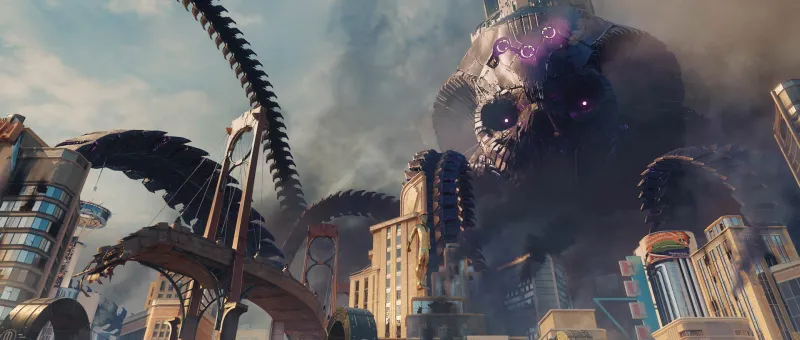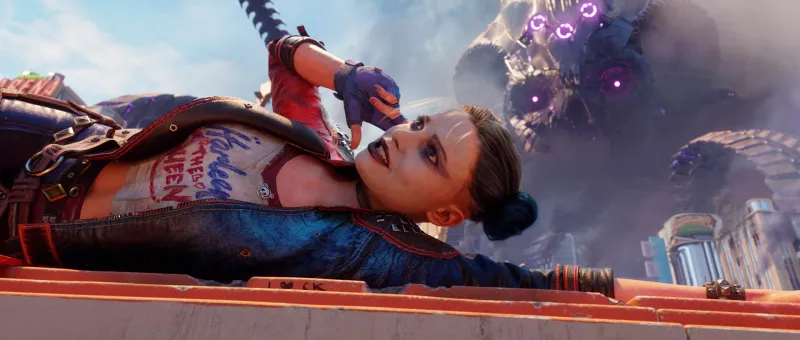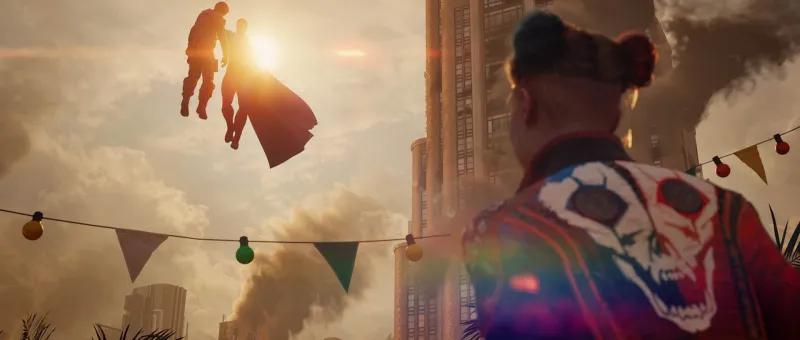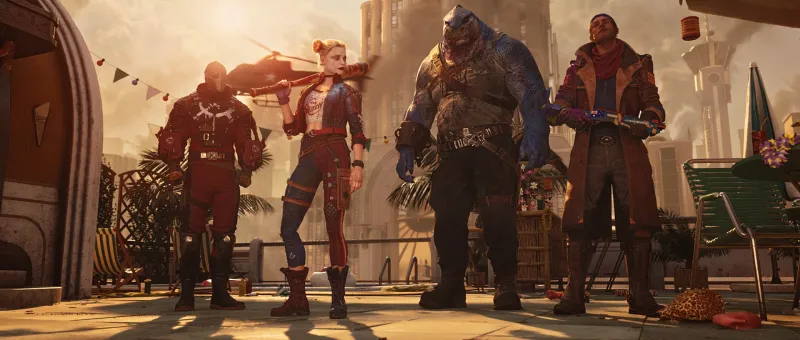Reviewed on:
PlayStation 5
Platform:
PlayStation 5, Xbox Series X/S, PC
Publisher:
Warner Bros. Interactive
Developer:
Rocksteady Studios
Release:
Rating:
Mature
Years ago, when I first heard about the provocative title for Rocksteady’s follow-up to the Arkham games, I recall wondering what mental gymnastics were in store to not actually murder the well-liked central characters of the DC mythos, including the version of Batman the studio had so expertly developed over prior titles. Credit where it’s due: Rocksteady followed through, and Kill the Justice League does just that. Unfortunately, it also killed my interest or enthusiasm through a story that feels juvenile and callous alongside repetitive and confusing gameplay. While many technical features work as intended, I walked away from every session feeling angry and out of sorts, which aren’t sensations that will keep me returning for endless hours of future adventures.
Suicide Squad is a high-octane action shooter where rapid urban traversal and uproarious gun combat are your non-stop companions. A ragtag crew of criminals, including Harley Quinn, Deadshot, Captain Boomerang, and King Shark, must fight through the devastated city of Metropolis, gradually offing the heroes of Earth after they’ve been brainwashed by the villain, Brainiac. Each of the four characters has their variation in how they fling themselves across the city and an upgrade path that allows for some specialization. Still, the core idea is pulling triggers, throwing grenades, and bashing into alien invaders. Each acrobatic navigation style takes some time to master, but I ultimately enjoyed the sense of speed and mobility. In combat, however, the constant vertical up-and-down effect is the first of many issues that make it hard to track what’s happening.
By default, an incredibly crowded HUD is almost nonsensically busy; the biggest challenge of important fights wasn’t the battle itself but simply seeing what was happening and where certain enemies or objectives were. The HUD may be customized and minimized, but you’re left with the opposite problem and too little information to complete tasks. Enemies have some functional variety but lack visual distinctiveness, adding to a pervasive sense of monotony where all the mission types bleed together into one chaotic smashfest. Everything is loud and obnoxious but rarely exciting.




Frequent cutscenes exhibit excellent animation and artwork on characters, especially showcasing some emotive facial expressions. Even with that advantage, the storytelling fails on numerous levels. It’s hard to enjoy a story where I don’t like anybody, and even the anti-heroes and bad guys are endlessly spouting bad one-liners, trash-talking, and shouting at each other. Beyond that tonal disconnect, the narrative is weirdly inconsistent and hard to parse, often with the leads feeling almost like side characters in their own story, with little volition of their own.
Progress through the game involves gear and character improvement by completing side missions; many tasks set overly specific requirements that rob the combat of variety, like only critical hits or certain types of melees to do damage. The more crafted main missions (especially the ones to take out League members) are more attractive, but are, without exception, weirdly anti-climactic and end with such bleak death scenes that any potential humor is blunted.
Online cooperative play works well. Especially after the short campaign’s conclusion, four friends could have a good time leaping and swinging around the city, blowing up bad guys in repetitive but action-packed missions. Unfortunately, I never warmed to the player investment loop. Many character upgrades are invisible beyond changes to things like the percentage of damage dealt or how long a power might last. Gear is more compelling, with some unique effects on the best weapons, but it all starts to feel the same after several hours. Post-campaign rewards and activities make a fervent effort to keep players engaged, but I found most to be new window dressing on existing mission types I had already confronted many times.
Suicide Squad is technically sound, and the action can be fast, frantic, and occasionally fun. The game could be considered a deconstruction and satirizing of the superhero concept. But for me, the whole thing feels mean-spirited, pessimistic, and glib. In other media, I’ve generally liked the irreverence of the Suicide Squad tales, but everything in this game feels less about laughs and more just joyless. I suppose it can be fun to piss all over any sense of genuine heroism in a comic book-inspired tale, but it can’t come as a great shock when some fans like myself just aren’t interested in the bloody and smug results.
